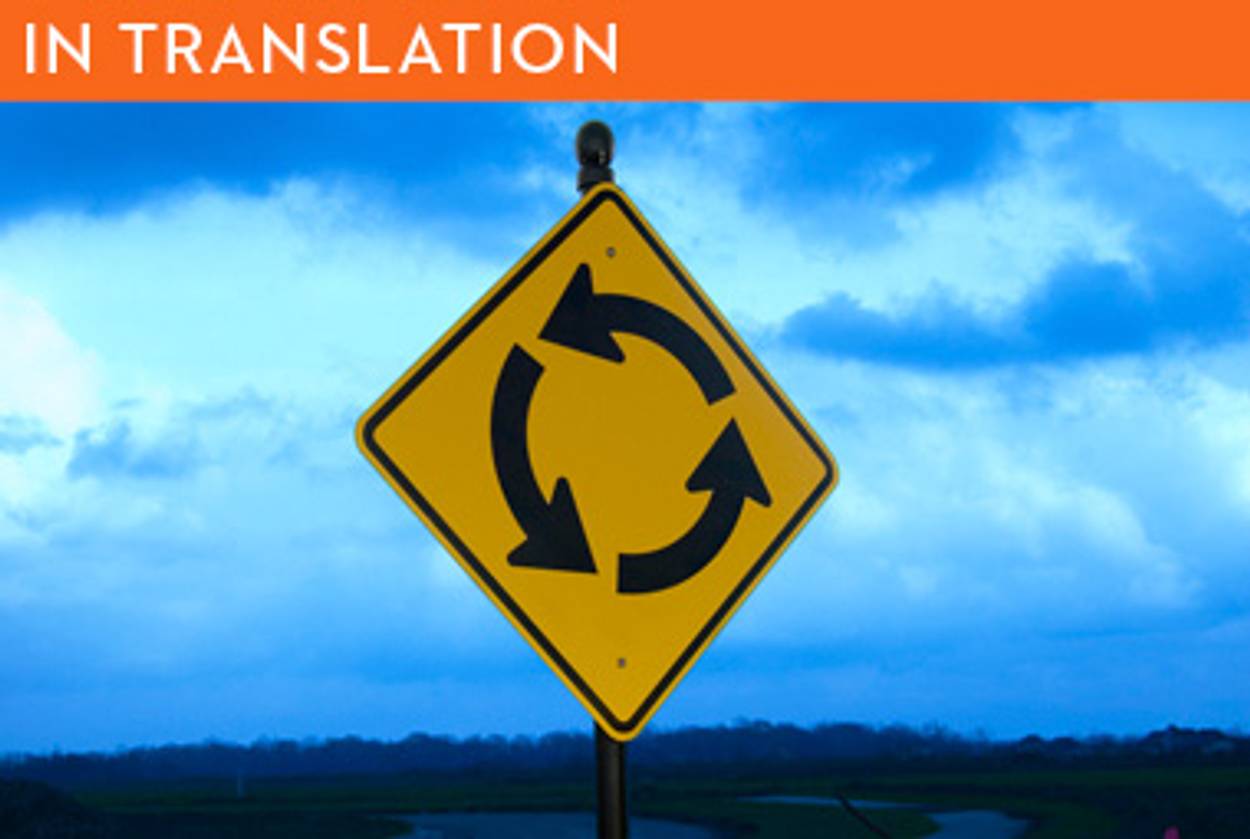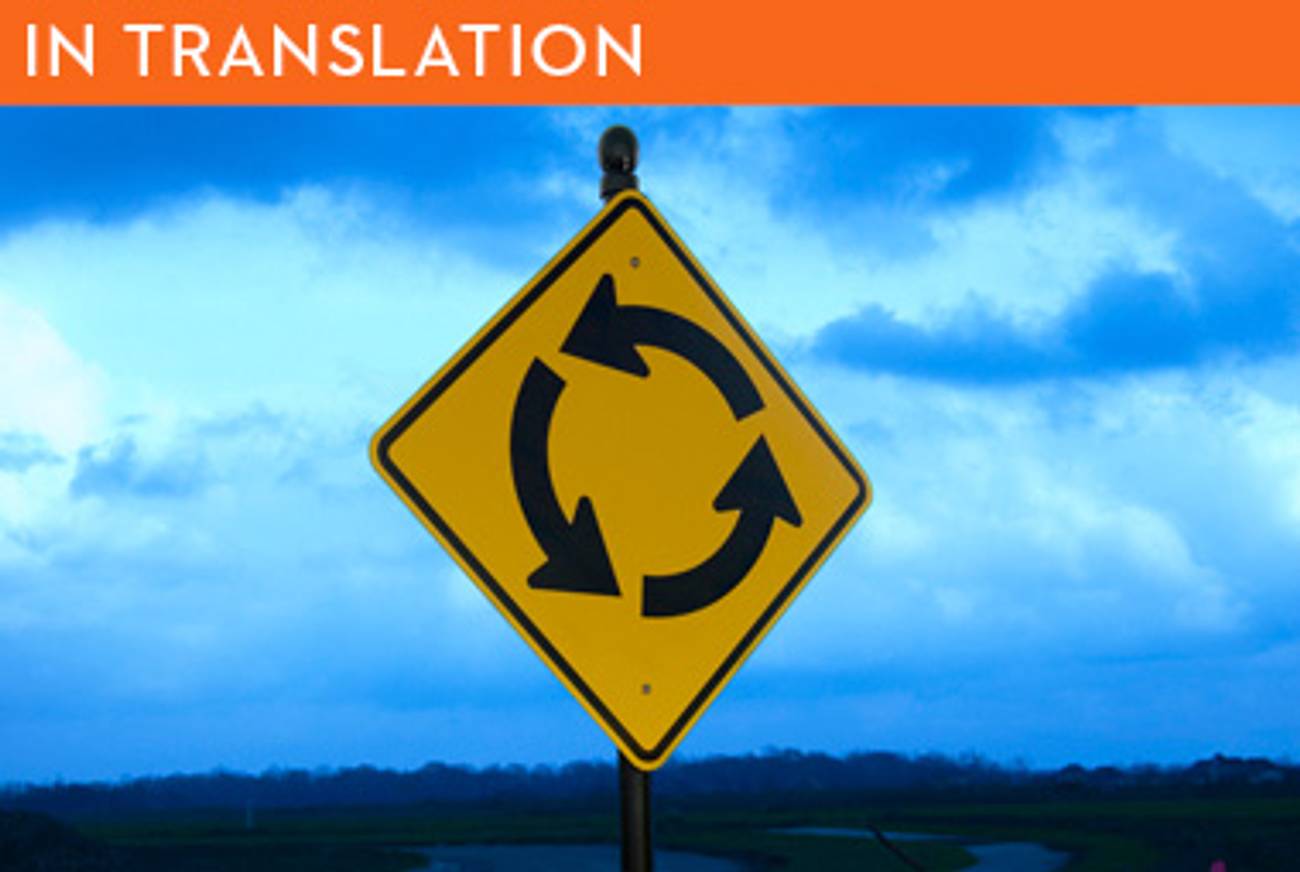Selective Memoir
Before Doctor Zhivago, Pasternak wrote poetry—and about himself




The distance to be traveled between biography and autobiography is greater even than the one between Moscow and northeasternmost Kamchatka: tens of thousands of versts, 11 time zones. It is the distance between how a writer is or can be read and how a writer desires to be read; it is also the difference evinced between a scrupulous but stylistically unadventurous academe, and the irresponsible beauties of an artist—of a Boris Pasternak.
Pasternak’s autobiography, Safe Conduct, was published in English 60 years ago this spring, and has just been republished in an anniversary edition from New Directions; the Russian original of this fragment of formative days was written in 1930, just a year before Pasternak’s first marriage collapsed. And yet there’s no mention of this union with Yevgeniya Lurye, and none either of their son, Yevgeny. The author’s father, Leonid, a portraitist of Leo Tolstoy and the first Russian painter to espouse Impressionism, and his mother, famed pianist Rosa, only make brief appearances; and one would think, from reading for facts, that the only events that ever affected Boris Leonidovich after his birth in 1890 were a mysterious Tintorettan dusk in Venice and meeting the poet and playwright Vladimir Mayakovsky.
The benefit of memoir is that you can say whatever you wish. In autobiography, one’s life—which is normatively, experientially, a succession of days that all seem the same, that recur weekly, monthly, by the season and by the year—can be revised into those few verses and lines of deep being, of living wholly. Here, Pasternak holds his pen away from any phrase or word that is not exactingly whole, and he appears to have no use for personalities that are not similarly encompassing.
His autobiography is essentially structured around them, or around them as symbols. Safe Conduct begins with a sketch of Russophile Rainer Maria Rilke, another friend of the Pasternak household and a later mentor to the son. Then the young poet—not yet a poet, still a composer and pianist under his mother’s sway—receives a musical education at the hands of Alexander Scriabin; following his forsaking of a music career due to lack of Absolute Pitch, Pasternak gravitates to philosophy, and with money his parents scrape together departs for Marburg to study under the neo-Kantians, notably Hermann Cohen. Homesickness and café disillusion follow, philosophy abstracting into poetry as Pasternak decamps Marburg to tour the Continent before returning to Russia, where he’s nearly met at the train station by the movement called Futurism and its Soviet saint, Mayakovsky.
Such is the formlessness of this book. It is a winding track of memories and poesy that leaves largely unmentioned such negligibles as the First World War and the 1917 Revolution. Readers might be reminded of Rilke’s own faux-autobiography, The Notebooks of Malte Laurids Brigge, or even subsequent imitative attempts by lesser Russian poets, such as the Precocious Autobiography of Yevgeny Yevtushenko, which flits among light criticism of the Stalin years, expressions of solidarity with an exemplary Socialism, and literary gossip: “Pasternak was as yet unintelligible to me. He seemed to me too complicated and I lost the thread of his thought in the chaos of his imagery.”
But perhaps the best analogy can be found in the other arts with which Pasternak concerns himself. Musically speaking, Safe Conduct is a theme and variations, a passacaglia whose grounding bass is the poetry he would later write. Alternately, one could think of his father Leonid’s renowned portraiture and see in the younger Pasternak’s lifewriting a veritable gallery of Rilke’s rigor, Scriabin’s ecstasy, Cohen’s stolidity admixed with Jewish sentiment, and finally Mayakovsky’s Revolutionary verve. While Pasternak was compelled to live long under Stalin, to be canonized by the regime and yet forced to refuse the Nobel Prize for his dissident Doctor Zhivago, Mayakovsky—the incomprehensible laureate of a newer world, who thrilled Pasternak with his “cloud that wore trousers,” his daring and abhorrence of tradition, his womanizing and conversation—commits suicide too young: “The beginning of April surprised Moscow in the white stupor of returning winter. On the seventh it began to thaw for the second time, and on the fourteenth when Mayakovsky shot himself, not everyone had yet become accustomed to the novelty of spring.”
On the last page of Pasternak’s memoir, Mayakovsky is turned into a symbol of all Pasternak still has to survive, of all that all Soviet artists had to survive—idealism and its disappointments, opportunity alongside opportunity for gulag—and this transubstantiation of a man into an age is worth quoting in full:
Suddenly, outside, underneath the window I imagined I saw his life, which now already belonged entirely to the past. I saw it move obliquely from the window like a quiet tree-bordered street resembling the Povarskaya. And the first to take its stand in this street, by the very wall, was our State, our unprecedented and unbelievable State, rushing headlong towards the ages and accepted by them for ever. It stood there below, one could hail it and take it by the hand. Its palpable strangeness somehow recalled the dead man. The resemblance was so striking that they might have been twins. And it occurred to me then in the same irrelevant way that this man was perhaps the State’s unique citizen. The novelty of the age flowed climatically through his blood. His strangeness was the strangeness of our times of which half is as yet to be fulfilled. I began to recall traits in his character, his independence, which in many ways, was completely original. All these were explained by his familiarity with states of mind which though inherent in our time, have not yet reached full maturity. He was spoilt from childhood by the future, which he mastered rather early and apparently without great difficulty.
Certainly it is more difficult to write well than to pull the trigger, and in his outliving of Mayakovsky, Pasternak found his strongest voice, as well as that estranging sense of living one’s own autobiography that might be necessary to poets in their practice. Pasternak once wrote, “the biography of a poet is found in what happens to those who read him,” but the mystical reversal became truer with time: the biographies of readers are found in what happens to the poets who write for them. That is true of the mad frothing youth that read doomed Mayakovsky. And that is true of the grayer, suffering Russia that called Pasternak her own.
Joshua Cohen was born in 1980 in Atlantic City. He has written novels (Book of Numbers), short fiction (Four New Messages), and nonfiction for The New York Times, Harper’s Magazine, London Review of Books, The Forward, n+1, and others. His first essay collection, Attention: Dispatches from a Land of Distraction, will be released in August. In 2017 he was named one of Granta’s Best of Young American Novelists. He lives in New York City.
Joshua Cohen was born in 1980 in Atlantic City. He has written novels (Book of Numbers), short fiction (Four New Messages), and nonfiction for The New York Times, Harper’s Magazine, London Review of Books, The Forward, n+1, and others. He is the recipient of the 2022 Pulitzer Prize in fiction, for The Netanyahus: An Account of a Minor and Ultimately Even Negligible Episode in the History of a Very Famous Family. He lives in New York City.